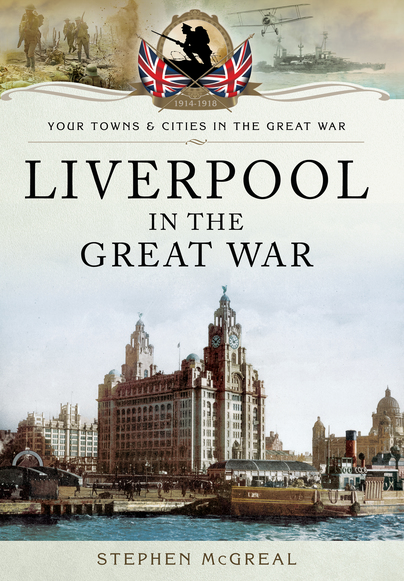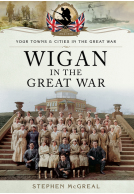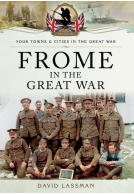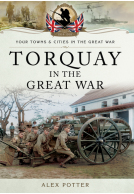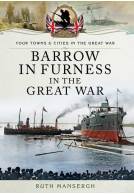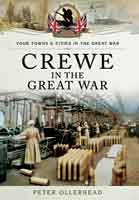Liverpool in the Great War (Paperback)
By
Stephen McGreal
Imprint: Pen & Sword Military
Series: Your Towns & Cities in The Great War
Pages: 160
ISBN: 9781473821613
Published: 10th November 2014
Imprint: Pen & Sword Military
Series: Your Towns & Cities in The Great War
Pages: 160
ISBN: 9781473821613
Published: 10th November 2014
You'll be £12.99 closer to your next £10.00 credit when you purchase Liverpool in the Great War. What's this?
+£4.99 UK Delivery or free UK delivery if order is over £40
(click here for international delivery rates)
Order within the next 2 hours, 6 minutes to get your order processed the next working day!
Need a currency converter? Check XE.com for live rates
(click here for international delivery rates)
Order within the next 2 hours, 6 minutes to get your order processed the next working day!
Need a currency converter? Check XE.com for live rates
| Other formats available | Price |
|---|---|
| Liverpool in the Great War ePub (68.8 MB) Add to Basket | £6.99 |
At the dawn of the twentieth century Liverpool had eight miles of docks thronged with cargo ships loading or discharging cargoes. The city prospered through its maritime trade, and this led to the Cunard Line and other illustrious transatlantic passenger carriers making Liverpool their home port. As the storm clouds of war gathered, few would perceive the conflagration would change the political and social make-up of Britain including the emancipation of women.
When Britain declared war on Germany in the summer of 1914, Liverpool's geographical position demanded it be one of the chief home bases of wartime operations. It was a challenge the city accepted with relish and went on to become one of the most significant home front contributors to the Allied victory.
Justifiably, the city cenotaph proudly declares 'out of the north parts came a great company and a mighty army,' but there is a forgotten army of patriotic civilians whose endeavours played a key role in the Allied victory. Despite an acute shortage of skilled labour, Liverpool led the way in the construction of munition factories and developed the required skills to 'feed the guns.' Initially men who were too old for military service produced shells, a local factory became the first in the country to introduce women shell makers, this initiative was replicated throughout the nation. As the men made the transition from street to trench, Liverpool and district developed into a vast arsenal employing approximately 30,000 women and producing a million shells monthly. Civilians were also actively involved in tending the wounded, fund-raising for hospital equipment and ambulances and the provision of home comforts for those at the front.
When the German submarine onslaught almost severed Britain's maritime trade routes food rationing was introduced. Damaged ships limped into Liverpool where their precious cargoes were salvaged and large swathes of Liverpool were ploughed up as the nation 'dug for victory.'
The city was also a portal through which thousands of American troops passed; they stayed briefly at Springfield Park Rest Camp before entraining south. Liverpool opened the first hospital in the United Kingdom for the treatment of American servicemen. Another first occurred on Independence Day 1918, when the first post-revolution march past of American troops took place on British soil.
This is the fascinating but largely forgotten story of how Liverpool provided the sinews of war.
McGreal's seventh book - arguably his finest yet - is sure to attract and generate the interest [of many] since his telling of ordinary folk coping during extraordinary times is heartfelt and invites reflection.
Merseysider Magazine
As seen in the Wirral News.
Wirral News
As featured on BBC Radio Merseyside.
BBC Radio Merseyside
About Stephen McGreal
Stephen McGreal is a married man, with three adult daughters. Locally, he is known as ‘the rocking horse man’, due to his long-standing occupation within this toy market niche. His spare time is frequently spent researching in military archives, writing or occasionally acting as a Western Front guide. Stephen is the author of seven other books on the Great War.
More titles by Stephen McGreal
Other titles in the series...
Other titles in Pen & Sword Military...







